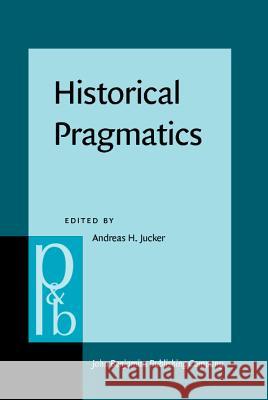Historical Pragmatics: Pragmatic Developments in the History of English » książka
Historical Pragmatics: Pragmatic Developments in the History of English
ISBN-13: 9789027250476 / Angielski / Twarda / 1995 / 644 str.
Until very recently, pragmatics has been restricted to the analysis of contemporary spoken language while historical linguistics has studied historical texts and language change in a decontextualized way. This has now radically changed and scholars from around the world are trying to build a new theoretical framework that integrates recent advances both in pragmatics and in historical linguistics. The volume, which contains 22 original articles, starts with an introduction that is both a state-of-the-art account of historical pragmatics and a programmatic statement of its future potential and its different subfields. Part I contains seven pragmaphilological papers that deal with historical texts and their interpretations by paying close attention to the communicative context of these texts. The second and third parts comprise papers in diachronic pragmatics. The ten papers of part II take a linguistic form as their starting point, e.g. particular lexical items or syntactic constructions, and study their pragmatic functions at different times (diachronic form-to-function mappings), while the four papers of part III take a particular pragmatic function as their starting point, e.g. discourse strategies or politeness, and study their linguistic realisation at different times (diachronic function-to-form mappings).











